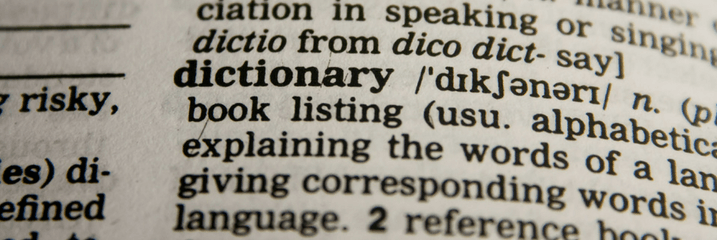We often write about the myriad of ways technology is changing the legal profession. From online legal research to instantaneous eFiling, it seems technology keeps making us faster and more efficient.
What is slow to change, however, is the language we use to describe the things we do. In fact, many of our most commonly used idioms have little relation to the modern activities they’re used to describe.
To bring a bit of levity to your day, consider these seven outdated phrases we’re still using on a daily basis.
#1 Cc
Just about every email program in existence allows you to send an email directly to intended recipients, with the option of “Cc’ing” additional recipients. That acronym, of course, refers to the “Carbon Copy.” But what does that phrase actually mean?
Believe it or not, there was a time when we did not use a computer for writing formal documents. Nor did we have Xerox machines to make copies. Instead, if you wanted to have an exact copy of something you’d typewritten, you had to use carbon paper, which was a piece of paper covered in wax and carbon pigment.
You would place it between two regular sheets of paper, put the stack together into your typewriter, and as you typed, a “carbon copy” of the original was created. It could then be sent to recipients other than the main person the letter was intended for.
As for how this practice trickled down to adding a recipient to an email, one can only imagine.
#2 Freelance
As the internet has gained prominence in the modern workplace, so too has the role of the “freelancer.” In today’s vernacular, a freelancer is typically thought of as someone who is not a regular employee of the company, and who works remotely via the internet. Writers, software developers, and even attorneys and paralegals often work as modern freelancers.
Historically, however, a freelancer was a mercenary soldier. In other words, he was someone who could be hired to fight for one side or another in battle. Today’s freelancing certainly seems much more relaxing.
#3 Scot-free
In the criminal law realm, we often hear of someone “getting off scot-free.” Present day, this means that someone got away with some sort of crime without facing any penalty.
The phrase, however, is thought to have originated from Shakespeare’s Macbeth, which uses the line “we have Scotched the snake, not killed it.” “Scotch” equals “scratched,” therefore “scotch-free” indicated something that was uninjured or unmarked. Shortened over time, the term Scot-free came to refer to someone who escaped a situation uninjured.
#4 Attachment
In the past, the word “attachment” at the bottom of a letter indicated that documents or information that explained the letter were physically attached by way of a staple or paperclip. Attachments were differentiated from “Enclosures,” which were documents that weren’t necessarily germane to the letter itself.
Today, we use the word “attachment” to describe anything and everything we send along with an email. Interestingly, the word “enclosure” seems to have gotten lost in the move away from physical letter writing.
#5 Eating crow
When we hear the phrase “eating crow,” it typically means that someone has had to admit a mistake they have made, often embarrassingly so. For example, “Henry had to eat crow after spelling the Judge’s name wrong in his Motion to Compel.”
Historically, the phrase literally referred to eating a crow. Given that crows are carnivores that not infrequently dine on rotting flesh, the crow is believed to be a particularly foul-tasting meat (pun intended).
#6 Rule of thumb
In modern times, we use the phrase “rule of thumb” to refer to a standard practice – e.g., “the rule of thumb is to include a table of contents if your brief is over 10 pages long.”
The origin of this phrase is the subject of some debate. While a few judges in the 17th and 18th centuries are said to have allowed a man to beat his wife without penalty so long as he did so with a switch no bigger around than his thumb (hence, the “rule of thumb”), many scholars now believe it has a more innocent meaning. Specifically, the “rule of thumb” is thought to be the manner by which brewers tested the temperature of beer – by sticking a thumb in it.
#7 Bookmarks
In the early days of publishing, it was quite a feat to create multiple copies of a book. The process was expensive and the books themselves were fragile. Bookmarks were created so the reader could keep track of her progress without laying the book face-down and opened to the last-read page – a process that could damage the delicate spine of the book.
Today, legal professionals often include electronic bookmarks in eFilings and other documents. Modern bookmarks still serve the purpose of marking a particular section of a document. They are just no longer needed to maintain the integrity of the document itself.
***
What other interesting words or outdated phrases do we use today that have little or nothing to do with their original meaning or purpose? Tell us your favorites in the comments!









